The Weekly Anthropocene Interviews: Rasheed Griffith, CEO of Caribbean Progress Studies Institute
A wide-ranging conversation on the present and future of the Caribbean in the Anthropocene
Rasheed Griffith is an economic researcher and CEO of the Caribbean Progress Studies Institute. He writes on Substack as
at .A lightly edited transcript of this exclusive interview follows. This writer’s questions and remarks are in bold, Mr. Griffith’s responses are in regular type. Bold italics are clarifications and extra information added after the interview.
There are multiple threats that climate change poses to the Caribbean, from storms to sea level rise to sargassum on beaches. Can you give me an overview of the current state of play on climate change in the Caribbean?
When you think of climate change, the problem is that it is still, in terms of policy, a fairly abstract concept. If you ask someone how to actually, as a small Caribbean country, how do you actually prepare yourself? How do you actually defend yourself? How do you actually adapt yourself? Those questions have to get boiled down to something else. And usually, or always, that should be some kind of industrial policy.
So for example, if it's the case that there are more hurricanes in the Caribbean, the problem isn't that the hurricane is coming. The problem is that the hurricane destroys schools and homes and roads and telecommunication wires, the actual infrastructure things.
I lived for a while in the Philippines and there was a massive hurricane that came through Philippines and in northern Luzon area and destroyed a substantial chunk of the area. Many people died, lots of flooding, so on. That same hurricane got stronger and went to Hong Kong and the city was closed for half a day and back to normal. Same actual hurricane. So the difference is that Hong Kong has very good infrastructure adapted for this kind of thing, where in the Philippines, it's quite poor, bad roads, bad houses, and so on.
The Caribbean has a similar issue.
The Caribbean is quite much in a hurricane prone area, but the building codes, there's still a lot of wooden houses, for example, in the Caribbean. That's not really the kind of infrastructure you need to withstand hurricanes. So when, for example, you see a hurricane come and destroy a big proportion of houses in the Caribbean, the hurricane isn't more strong per se, it's that the infrastructure got weaker and weaker over time because it's been poorly built previously. So of course that has therefore a bigger impact on damage. So those are the kind of problems.
And the government seems to not really take that too seriously. So when it comes to climate change, they always talk about how it's very bad. Completely true. And how it's quite impactful in the Caribbean. Completely true. But they never move to the other position of saying, well, the actual thing to do is increase the infrastructure capacity of the countries. And that's been lacking quite substantially across the last few years.
Thank you. So one other climate issue I've been reading about, a big part of the Caribbean's economy is from tourism, obviously. And some Caribbean island nations lost huge chunks of their GDP during the COVID dip, due to the lack of tourism. So are you concerned that climate change will put a damper on tourism’s contribution to the Caribbean economy? Will tourism hold up?
Yes, it'll hold up. A lot of tourism. When you think of tourism in the Caribbean, it's actually quite diverse in some ways. So for example, in Barbados, tourists are pretty much skewed to more higher end product. Of course, on the margin, something might adjust and so on. But oftentimes, beach isn't the primary attraction for many tourists. It's the artists, food, culture, and so on. So I think that that [climate change] really won't have a sustained impact on tourism. It's definitely not a good thing for tourism, that's for sure, but I don't think it will cause like a massive decrease over time.
Thank you. So shifting to another thing, I feel like one story that's being massively undercovered is the current drought in the Panama Canal and its implications. How bad could that be? What does the world look like if suddenly it's like that every year? Are there potential hydroengineering projects we could do to mitigate this? What is your take on that? That's a choke point for the global economy that's under threat right now and it's sort of barely making the news.
Yeah, it is surprising. I guess it depends on which news. In the econ news, it's pretty much always there. But yes, it's a big problem. The current drought seems to be primarily a severe El Niño event, not necessarily a sustained over time problem. And yes there are engineering things you can do, but these take many years to do so there's no real short-term solution besides what we've been seeing, where there's been limiting of the amount of ships going through the canal per day. Which is substantially impacting the flow of global trade. I saw some ships are even like redirecting around South America now because that would have been cheaper than just waiting to not go through. Which is obviously not good for prices of food and trade and so on, because obviously when the shipping price increases the actual price of the goods increase over time as well. That's not great. But the canal, unfortunately, there's no short term solution for that. The good outcome is that it seems to be more of a kind of, I won't say freak event, but kind of a short term event. And over time, that should clean itself up. I do suspect they're going to try to essentially increase the capacity in the canal, but that's a ten-year project.
So you think short-term it’s annoying, but long-term probably going to be okay?
I think so.
Okay, thank you.
So you've written, and I thought this was really interesting, about how it might have been a mistake to set up like independent countries so small in the Caribbean, just because like there's such a small population, you have a small sort of expertise pool for each country. Do you think that there’s potential for some greater unity or even maybe in the future full sort of European Union style supranational federalism among Caribbean states, maybe through existing platforms like CARICOM? Do you think that the Caribbean is likely to unify potentially politically or economically or supranationally in the upcoming decades? And should it? That's maybe a different question than will it. Should it and will it?

So back in 1958, there actually was a Caribbean Federation. It lasted four years, 1958 to 1962. It was called the West Indian Federation. One government, one prime minister, you know, so the big countries, Jamaica, Barbados, Trinidad, and these small Eastern Caribbean countries. So that was the actual intention, because that point was made back in the 50s, where the Caribbean is too small by itself. To have one large government and one large civil service, that was the intention. But then that failed for various infighting and political reasons and, you know, personality constraints and so on. And it failed. It was essentially like Canada or like Australia, that kind of federated system. That was the intent.
Should it do that? Of course, it was correct in 1940, it's correct in 2023. Will it happen? I think it's very unlikely based on current political will. Even most people in the Caribbean don't even think it's a real thing to happen. I'd say most people don't even know about the Federation because it's not taught that well in history classes.
So I think it's a long shot to think it will happen, but personally I think it should happen for the benefit of the population in the Caribbean. Because having a good civil service would actually help, I think, to solve some of these problems that we're seeing now that are kind of really exacerbated by a lot of the climate fiascoes.
So that would be what you would advocate for as a path forward.
So, I don't advocate for it. For an actual path forward, you have to look at what reality is now. And there are things that you can adjust domestically to actually help progress, those things are more useful to advocate for now. But on a meta level, then yes, I think you should have a federation.
Interesting. So speaking of that, you're an expert on Caribbean-China relationships I know, what do you think of the geopolitical status of the Caribbean in the current, what some are calling a Cold War II between the U.S. and China. Relatedly, how does that interplay with Caribbean nations' options of transitioning to clean energy, especially now that China is selling a lot of cheap solar panels and stuff? What do you think the interplay of that is, how Caribbean nations are navigating that U.S.-China competition?
In general, the Caribbean is not a particularly important player when it comes to geopolitical questions. You know, there is one small aspect where it is, where, as you might know, five of the 14 countries that recognize Taiwan are in the Caribbean. So there's a substantial number there. So in that sense, Taiwan as a diplomatic place in the world is a Caribbean dependent in many respects.
Besides that, Chinese companies obviously deploy a fair amount of money to the Caribbean, but it's a lot of money relative to Caribbean size, but it's not a lot of money relative to Chinese investment sizes. That's the difference. And in terms of U.S. and China, it's not going to be easy in the next few years.
I think the U.S. will increasingly leverage pressure on Caribbean democracies to do less engagement with Chinese companies. I think there's no way to push back against that. I think it’s a mistake because as you kind of pointed out, a lot of the green tech is actually coming from China. So a lot of these solar panels are from China. Actually in the Caribbean, for example in Barbados, all the electric buses are from China. Many of the electric cars are from China. In Panama, there are now maybe seven different Chinese car dealerships in Panama that should become more popular. So China really is putting, you know, the economics where it matters on dual-asset transitions type things. That's the irony of it.
China isn't seen as a global leader in climate change policy. I think rightfully, in some ways that's true. But at the same time, most of the transitionary tools that small countries use are Chinese-made and Chinese-manufactured. If you want good electric cars, they're going to come from China. If you want good solar panels, they're going to come from China. If you want good batteries, they're going to also come from China.
So on one side, the U.S. is pushing a lot of this stuff about climate change and so on, but the actual country that actually gives the money to actually help the cause is from China.
I even mentioned earlier about the infrastructure issue, like which country is giving the money to build the roads and the schools? It's Chinese money. So when it comes to, I say impact, when it comes to climate resilience, China has been more impactful than the U.S. That, I think, shouldn't be the case. I do think the U.S. has to lead a lot more in this endeavor. But in the Caribbean, it's a very stark contrast. You can see it very clearly. And I think over time, as the U.S. increases pressure on the Caribbean countries to deal less with China, you could actually see a very bad result of there being even less climate resilience in the Caribbean.
Well, on the renewable energy topic, what do you think are Caribbean nations’ best options for transitioning to renewable energy? What are their best options? Solar is getting incredibly cheap and incredibly fast. Is it just solar, like lots of rooftop solar, or would it be worth it to invest in some more capital-intensive stuff like offshore wind or nuclear projects?
Nuclear no, at least not until we get fusion. Offshore wind will be very important, and then solar, those two things. For example, there are some estimates you can do that if you were to fully move Barbados, for example, to fully renewable energy, this is wind and solar, and also full electric car and bus fleet in the entire country, you can increase GDP of Barbados by 40%. That’s the money you save by not spending on oil. And so renewable-izing, transitioning your sector into renewables, you can increase your GDP substantially. That might be true across all of the Caribbean countries. We’re small countries, we’re don’t need that much energy, it’s not a New York-level problem.
So basically there’s a great economic case for renewable energy in the Caribbean, there’s just not the political will to make it happen.
Yes.
Do you think that eventually it'll just get so good that private enterprise will step in and do it just because there'll be such a good business case for it? Or do you think it just really will not happen without the government really taking an interest?
Well, remember that, for example, the grids in the country, it might be a private company that runs the grid, but you can't just change the country's grid without government approvals.
In South Africa, we’re seeing that a lot of South Africans are just buying their own rooftop solar panels because the government-run grid is so dysfunctional. Could we start to see that in the Caribbean? Is there enough disposable income to provide rooftop solar? Could citizens leapfrog the government and kind of build a decentralized renewable system on their own like we're starting to see in South Africa? Or does that seem implausible?
Well, I'm very wary of projections because it's very easy to project everything based on income variable. I think, however, that you need, to also have the cars transitioned into electric for this to work because a lot of the fuel is just car fuel as well. So that kind of effort needs to have government involvement because you can't just wait until the last person does away with their oil car. That's not going to work. And right now, for example, there are actually very heavy taxes on importing electric cars. You need, need, need to have government involvement, especially in small countries. It's not an if, it's a requirement.
Thank you very much. So I'd now love to ask some questions about sort of some specific cases in the Caribbean. So starting with sort of the saddest story, really, Haiti, the only UN Least Developed Country in the Western Hemisphere.
Haiti has been, as you know, kind of a total mess since the assassination of Jovenel Moise. What are the paths forward there? Like, one thing I was really interested by for a while there was the proposed Kenyan intervention. Due to historical reasons, obviously, [Haitians] really don't want, like, European or American intervention due to sort of neocolonialism aspects and the U.S. occupation in the 20s and stuff. But the proposed Kenyan intervention in Haiti had some potential of being seen as South-South collaboration, it was not white people coming in and showing you what to do. Why exactly did the Kenyan intervention in Haiti fall through? And does that seem like any kind of possible path forward? What is sort of the path to picking up the pieces in Haiti and trying to build again?
Kenyan security wouldn't make any difference in Haiti at all. The problem isn't that there are no police people in Haiti. That is by no means the problem. That is a result of the problem. The problem is there is no government. There is no state in Haiti. There actually isn't a state. They have not had elections for, what, four years now? [Haiti has arguably had no legitimate head of state since President Jovenel Moise was assassinated in 2021, and much of the country is controlled by warring gangs].
See, I don't have a nice answer for you on this question. Haiti is a failed state. Failed states are not fixed by small police forces. That's not how it works. In the history of the world, that's not how it works. There are only, unfortunately, one way it works. And there is a, granted, a severe reluctance about all parties about actually doing the thing you need to do to fix Haiti.
What do you mean?
Well, you have to occupy Haiti for many years. And, you know, you tried it before and it didn't work. Yeah, that is also true. But unfortunately, that's kind of the only path forward I see. Until that decision is made and made quite firmly, there is no actual conversation we should even be having about Haiti. There literally is no state in Haiti.
That is both…that sort of sounds true, and it also seems to me vanishingly unlikely that any country would commit to that, right?
Yeah.
Yeah.
So short term, like what, just in terms of human well-being, is the option? Just to try to open up more and more migration to Haitians to just get Haitian people out of this nightmare of a situation? Like there’s a huge Haitian migrant population in Chile already, and we'll see with the global demographic transition, some countries like Brazil will certainly be worried about their fertility rates. Is the solution just to try to get more Latin American countries to accept a whole bunch of Haitian immigrants to just get them into a more functional country that does have a state?
That won't happen either, unfortunately. It will be very difficult, even in the Caribbean. Caribbean countries, primarily black countries, refuse also to take more Haitians because they worry about their welfare state, population, stability, crime, all the typical reasons you would have for not taking more immigrants from poor countries. Even Jamaica closed off its visa pass for Haitians, for example. So it is going to get even more difficult.
In Latin American countries, Haitians will try to get in. Right now in Panama, there's a massive, massive illegal migration crisis through the Darien jungle. And you're seeing actually a lot more Haitians pass through as well. They try to get to the U.S. by all these ways. So yeah, some countries will likely accept more, or I should say, turn a blind eye more often. But if you're going to have the actual kind of concerted effort to accept more Haitians, I think it will be a very difficult conversation.
Do I think it should happen? Of course, I do think so. But I think that kind of conversation will be quite stunted.
Okay, interesting. So, there's a famous chart that's done the rounds on developmental econ circles showing the Haitian and Dominican Republic GDP per capita diverging, like, in the 60s. I'm sure you've seen it. And I've seen projections that the Dominican Republic is on track to be a First World country, a high-income country pretty soon. And you know, in my environmental science class, when I was in university, they showed that you can see the Haitian/Dominican Republic border from space because there’s still forest on the Dominican Republic side. And obviously, there's already sort of a semi-legal to illegal migrant labor of Haitians in the Dominican Republic, and there's a lot of other issues. What's it gonna look like having sort of an increasingly wealthy state, sharing an island, Hispaniola, with an increasingly non-functional lack of a state?
Well, we have North Korea, South Korea. I guess it is uncommon, statistically speaking, but that's also a thing. I think the Dominican Republic will increase security at the border. They will spend more money on security. That's what South Korea does.
Okay, interesting. Another sort of question. What is your sort of forecast for what might happen economically or politically with Cuba? Could we see sort of a Cuban Gorbachev, a Cuban Deng Xiaoping, or is Cuba likely to stay on its sort of isolationist trajectory? Is Cuba maybe likely to sort of hook up with China and try to throw its limited weight around geopolitically by finding a new superpower patron? Like, what is the likely future for Cuba?
There will be no Cuba-China ties. I don't see that happening.
Cuba is, you know, in many ways, obviously a very sad story because it easily could have been the most important island in the Caribbean. even beyond Puerto Rico, for example. Of course, the embargo, the socialism that obviously went south.
The best story, in my view, or the best future for Cuba would be probably something like Puerto Rico, which is you obviously have to reform the state and you have to committedly reform the state, ideologically speaking, and essentially try to do more deals with the U.S. Until the U.S. opens up for Cuba, there is no way forward for Cuba. In many ways, you know, it's quite unfortunate the U.S. maintains the embargo. There's no embargo on, in my view, even worse places, but Cuba still has it.
So, are the Cuban government and the different non-governmental power players in Cuba actually deciding to reform the state into a more open market society? I'm not saying it has to be Norway, right? It has to be slightly better than it is now. That would be the way to kind of get to a point where you can start doing actual business and getting investment from foreign parties and so on. But to think of like a Soviet bloc again, helping Cuba? We're not seeing that. Loans from China have been going down. They're not actually not going to increase again. The tech transfer has been down.
The only real way forward is a rapid liberalization of the market in Cuba. I don't really know if that is a likely scenario. But again, when the Soviet Union fell, that was also not a very known scenario. That kind of happened all of a sudden. So in my view, I think it may happen in Cuba all of a sudden. Like one day we'll wake up, we'll see some new stories. I say, oh, that's happening fast. I can't really see a gradual change happening in Cuba. It's been quite resilient in the last few decades.
Speaking of which, Puerto Rico.
Puerto Rico got a lot of attention in 2017 when, after Hurricane Maria, it was realized they were kind of falling between two stools and that as either a U.S. state or an independent country, they would have likely gotten more aid faster. They couldn't apply for state aid and they couldn't apply for international aid.
And there was sort of a push, that I personally supported as an American, to try to make Puerto Rico a state, but the Republicans blocked that because it would likely be a Democratic voting state.
What do you think is sort of the medium-term solution for Puerto Rico?Like independence, state, status quo, something like a compact of free association like with the Marshall Islands? What do you think is the path forward for Puerto Rico?
So the path forward is likely going to be status quo, of course. But it should be a full state. The whole domestic policy issue is severely tense in many ways, but the fact that Puerto Rico is not a state yet is ridiculous, in my view.
It is, it is. Mitch McConnell said that accepting Puerto Rico would be socialism! And I’m like, what? It's accepting a new U.S. state!
Yeah, it's ridiculous.
That is kind of the most like Americana, apple-pie thing you could do.
Yes, exactly. So yes, on the reverse side, going towards independence is a completely absurd idea in my view. There would be absolutely no benefit for Puerto Rico to be independent. It would be much worse off.
So I don't know if you've followed this, but the Department of Energy under Biden has been investing quite a lot in rooftop solar and decentralized solar resources in Puerto Rico. Do you think that could eventually become, if not a direct economic spillover benefit, at least sort of a model for renewable energy progress in other Caribbean states? Because they're getting external support to sort of build out some of that capital intensive grid infrastructure.
Ideally, sure, but I mean, it's very easy for the U.S. to do that in Puerto Rico, but not in other countries per se. I do think that, you know, on one level, I think that when we think about solar power, or renewable power, and small countries, there's always this sense of you have to, there's a conversation about you have to fix the grid, the grid is actually quite bad.
For various investment risks and so on, it's very difficult for some foreign company or foreign country to do it. The government themselves need to take on the loans and do it domestically, for various expropriation risks and so on. But what's happening in Puerto Rico, I think it's very good progress.
Yeah, good!
So what is, in your opinion, the likely economic and geopolitical and environmental trajectory for your home nation in the next couple of decades? What are your thoughts on the future of Barbados? Mostly status quo, or a chance to increase in GDP growth and economic development, or maybe some headwinds with climate issues?
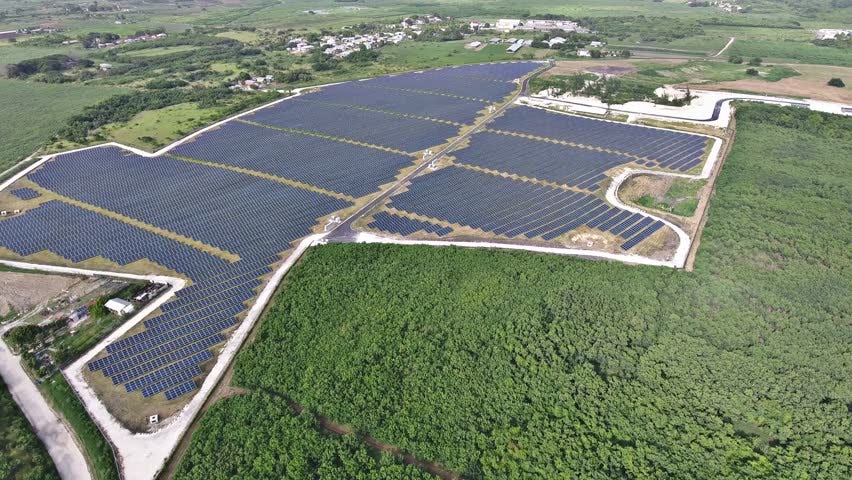
So the current government is very low-capacity with very few progressive ideas to change the economy for the betterment of people living in the country. And that government controls all of the seats in parliament and likely next election will not lose the election, and also for the next next election also not lose the election either.
So because of that I do not think there's going to be a substantial difference in policy from now or for the next 10 years. So because of that, I think you can consider the decline of the current last 20 years to continue, which is what I also foresee. It makes me very sad to think about it, but if nothing changes from what it is now, you will see 20 more years of decline.
I'm sorry.
And this is a more involved scenario, a particular interest of mine: there’s some really interesting cetacean-related stuff going on in Dominica. They’ve named the world’s first sperm whale reserve to protect this specific group of sperm whales called the Eastern Caribbean Clan, like 200 sperm whales that hang around around Dominica. And there’s a research project making some progress in decoding sperm whale language with AI. If we do get some meaningful means of communication with sperm whales, and this “first contact” is in the waters of the sperm-whale-friendly country of Dominica, could we see the world’s first whale nation? Could the Eastern Caribbean Clan be eventually recognized by Dominica as citizens, or an autonomous zone, or something? There’s a sci-fi geopolitical scenario for you.
That’s a really good question. That’s pretty exciting. I think, however, the side-by-side scenario that you bring up is going to be quite complicated in the sense that we tend to have a tendency to distrust outsiders. So I think that over time if we can actually speak to different species, I don't think it'll actually be any kind of recognizable diplomatic agenda going on there. I think it might actually become perhaps even more dangerous. That would be a sci-fi scenario, I foresee. Because that's going to be an issue where you're going to have to, okay, well, that would bring up all these questions about who gets the rights of the water, who gets the rights of the location. That would be a very interesting sci-fi world, but I think it would not be quite harmonious in the short term.
There does appear to be at least a political constituency in Dominica for being nice to sperm whales because they just made a protected area well before we're talking to sperm whales.
So maybe that's a sign that some kind of... well, Dominica has a very active diving industry. So I think it's more self preservation. You kind of want the water to be clean and so on. That should get you divers to come to Dominica. Also keep in mind, Dominica is a microstate. It's like what, 70,000 people? It's essentially one town in the jungle.
This is just like a little sort of environmental fantasy of mine, the whale nation thing, because I've been following that and I just think it would be really, really cool. But that actually makes me hope that, hey, you know, this is a small country, maybe they would jump on the opportunity to do something really special, like potentially like trying to really double down on being the place where you can come to see sperm whales or you can talk with sperm whales or do some kind of proto-communication with sperm whales.
In this imaginary world where we can talk with cetaceans, it feels like Dominica might be substantially more willing than other states to grant them legal rights or grant some form of autonomy or a chunk of their waters to a sperm whale reservation or sperm whale autonomous region or something.
I really have a hard time envisioning the U.S. doing something like granting any novel legal status to sperm whales given that we have like an offshore drilling industry and major fishing industries and an established conservative movement that's against environmental policies.
But it feels like Dominica, because it's sort of small and sort of flexible, it might have the potential to do something interesting here. Even if it's somewhat gimmicky. Like, if the whale communication project goes well, I could envision some statement like, Dominica declares its sperm whales to be legally citizens, not just metaphorically, or something. Like, that's the kind of thing that it feels like might be possible.
I agree. I think that that's not impossible. It could even be possible. So I think that's true. It'll definitely be more likely to happen in a small state than the U.S. for sure.
Yeah. I just saw quotes where Dominica’s Prime Minister Roosevelt Skerritt was talking about the sperm whale reserve, and he was effusive. And that just made me think, hey, wow, maybe this is some place where they could do something of at least great symbolic value towards coexisting with cetaceans in the near future.
It would. I think it would. If Skerritt thinks it would give him international points, then he would do it. Yes.
Interesting, very interesting.
So, you have been very gracious in answering my sometimes far-fetched questions. What would you like to share? What questions should I have asked that I haven't asked that you would like to answer, so to speak? What fact should the average American or European know about the Caribbean that they don’t know now?
Caribbean food isn’t just jerk chicken from Jamaica!
What are your favorite examples of overlooked Caribbean dishes?
Barbadian macaroni pie, Barbadian souse. It is quite good.
Thank you for joining us!
Thank you.
There are so many more amazing stories I want to write about—please consider a paid subscription to The Weekly Anthropocene!

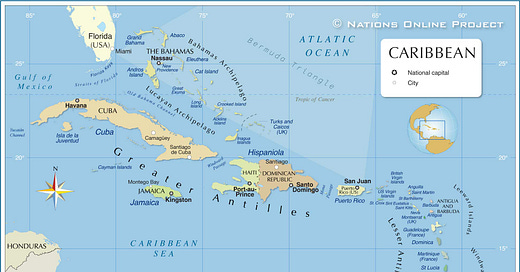




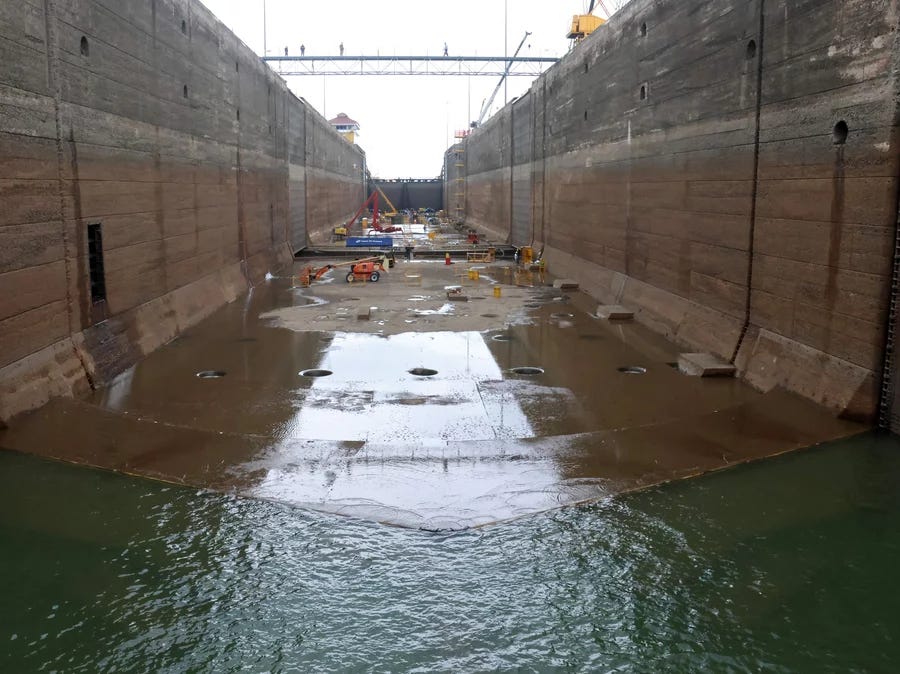

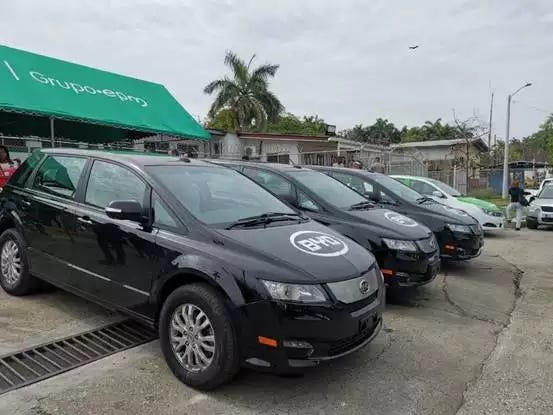




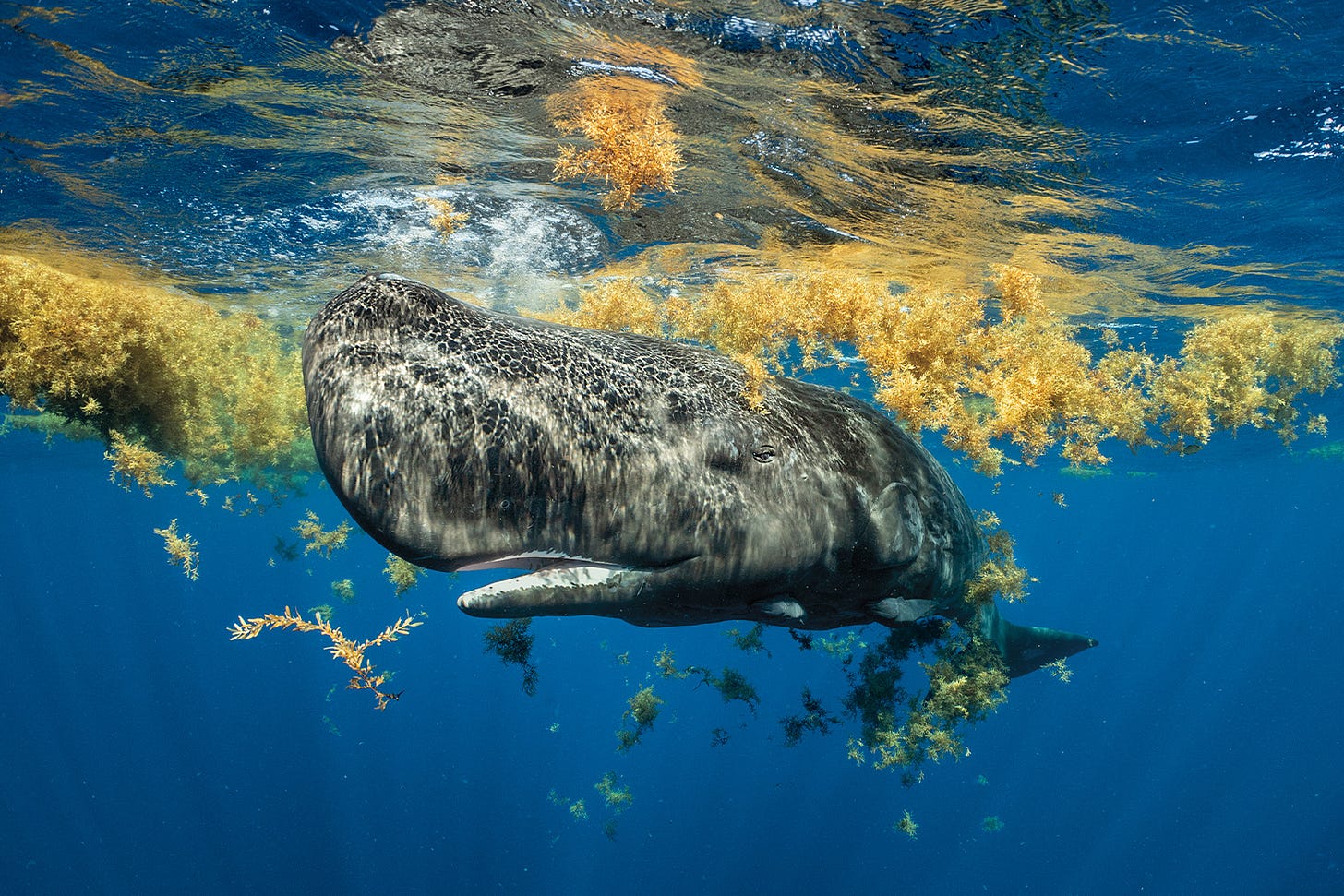

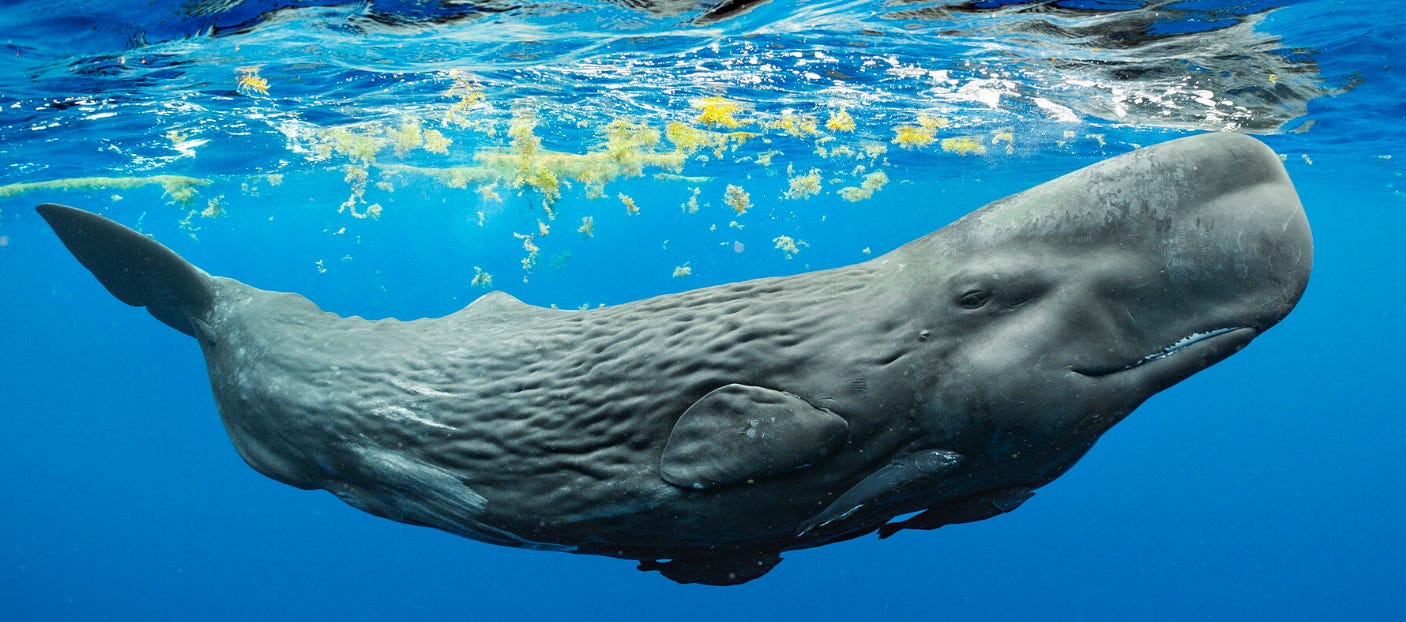

A very informative and thought provoking essay: geopolitics, climate, and some visionary projections beyond anything this reader has encountered- anywhere! A treat. Geopolitics: the area might be upgraded in American policy-advising circles as an Area of Concern (to adopt WHO taxonomy) for obvious, non altruistic reasons. Climate: love the solar developments and lots of seasonal wind potential? Whale nation? ❤️❤️❤️🙂🙂🙂!!! You should write a novel based on a world with many such nations!
All in all, a thought provoking time was had by all.
So Griffith doesn't agree with Matt Yglesias that Jamaica (which already has nuclear regulatory infrastructure and an experimental reactor) should try to solicit investment from US startups working on designs for lower-cost fission technologies?